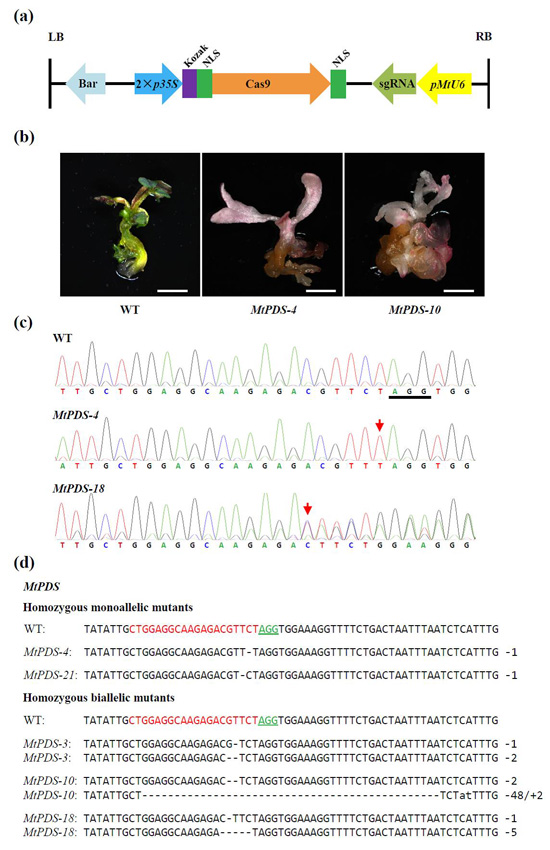Recently, a new progress in the establishment of a highly efficient Medicago CRISPR/Cas9 system was reported by researchers from Biotechnology Research Institute of CAAS. This work was online published in the latest issue of Plant Cell Reports.
In recent years, several genome editing technologies based on engineered nucleases have been developed and successfully reported to mutate specific loci in various organisms. Compared to the early developed genome editing methods, such as zinc-finger nucleases (ZFNs) and transcription activator-like effector nucleases (TALENs), The advantage of the simplicity of the cloning strategy and less limitations on potential target sites make the clustered regularly interspersed short palindromic repeats (CRISPR)/Cas9 system the standout choice for targeted genome editing in understanding gene function and developing valuable traits in model plants and food crops. Despite the CRISPR/Cas9 system has recently been reported to mutate targeted genes in somatic cells of M. truncatula and soybean by root hair transformation suggesting the application potential of CRISPR/Cas9 in legumes. However, CRISPR/Cas9-based stable transformation in forage legumes has not been reported. In this study, the authors developed an optimized agrobacterium-delivered CRISPR/Cas9 system, which could successfully induce targeted genome modifications in the model legume M. truncatula. By using this system, the researchers obtained monoallelic and biallelic homozygous mutants (10.35%) for MtPDS in the T0 generation which suggested that the strategy for vector construction was amenable and this CRISPR/Cas9 system could serve as an effective tool to facilitate studies of gene function in M. truncatula. Further study will extend the range of applications of CRISPR/Cas9 to cultivated legume forages with more complicated and bigger genomes such as alfalfa and clover, which will benefit and speed up the forage legume improvement.
Dr. Yinying Meng is the first author of this paper, Prof. Lifang Niu and Prof. Hao Lin are the corresponding authors. This work was supported by grants from Ministry of Science and Technology of the People’s Republic of China, National Natural Science Foundation of China and Chinese Academy of Agricultural Sciences.

|